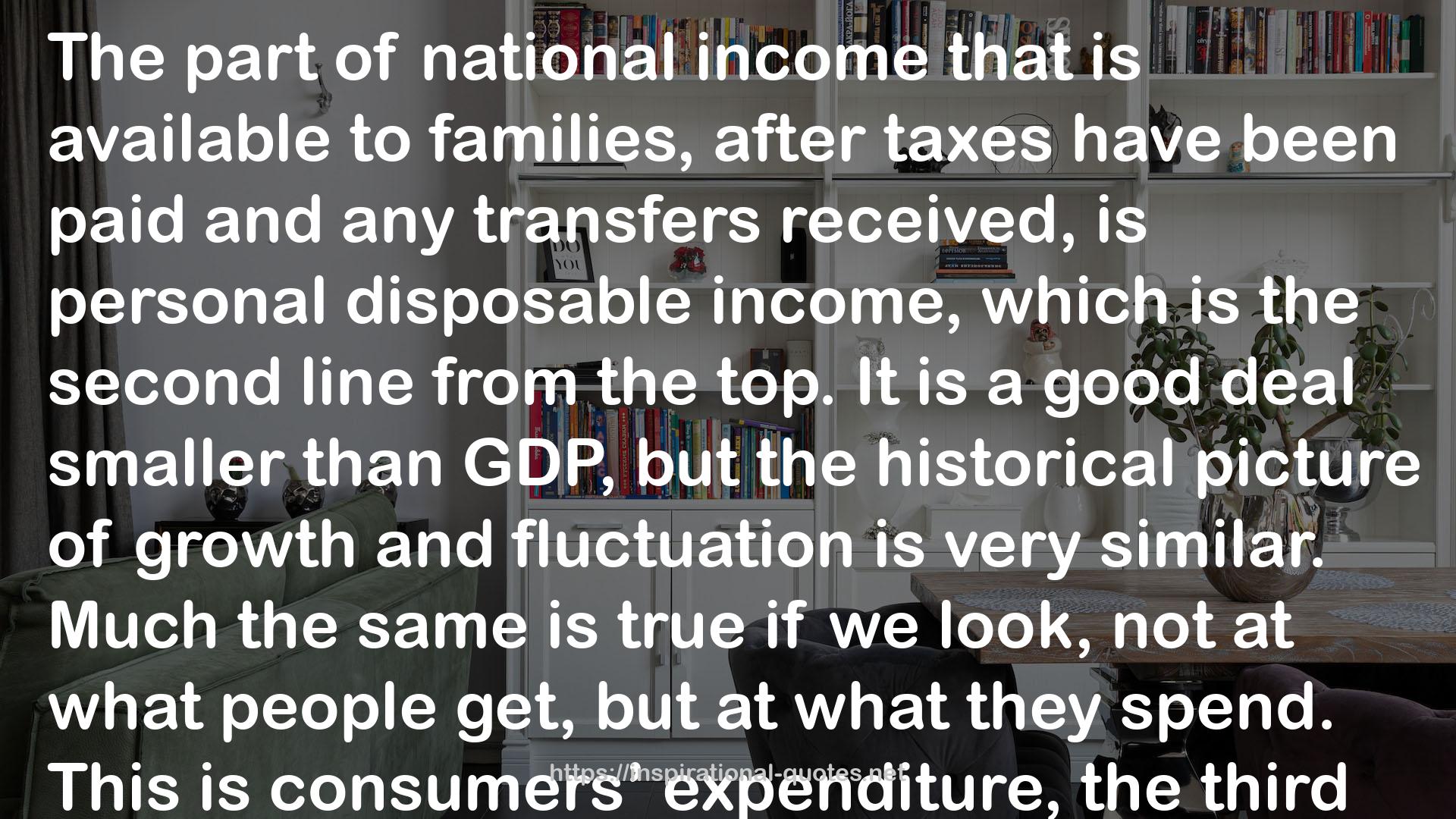" The part of national income that is available to families, after taxes have been paid and any transfers received, is personal disposable income, which is the second line from the top. It is a good deal smaller than GDP, but the historical picture of growth and fluctuation is very similar. Much the same is true if we look, not at what people get, but at what they spend. This is consumers’ expenditure, the third line. The difference between personal disposable income and consumers’ expenditure is the amount that people save, and the figure shows that the fraction of their income that Americans save has been falling, especially over the past thirty years. We don’t know exactly why this has happened, and there are several possible explanations: it is easier to borrow than it used to be; it is no longer as necessary as it once was to save up to make the deposit on a house, a car, or a dishwasher; Social Security has perhaps reduced the need to save for retirement; and the average American benefited from increases in the stock market and in house prices—at least until the Great Recession. "
― Angus Deaton , The Great Escape: Health, Wealth, and the Origins of Inequality
